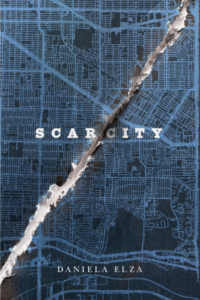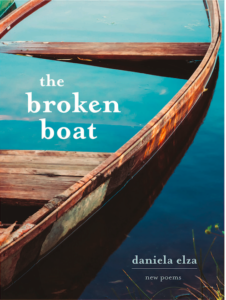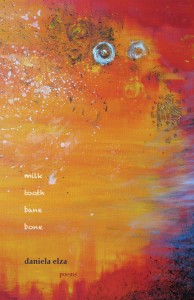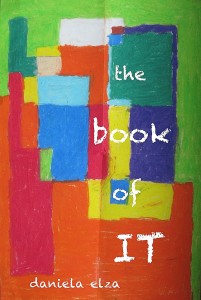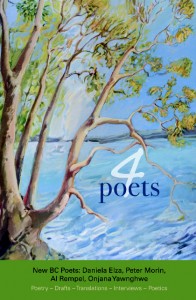Rocksalt Anthology
Posted by Daniela Elza on Oct 24 2008
Last night, I finally got my hands on the anthology. It is beautiful. It has 108 poems in it from emerging, mid-carrer, and established poets. This makes it quite exciting. It felt to me so much like a family, intergenerational.
It was great to listen to the different voices and what struck me was how many of those voices were real voices. No more of that sing-songy reading of poetry, where every line goes up at the end. It always bugged me, to the point that it creates a barrier to meaning. Last night, poets spoke their poems in such unique ways that you can feel right away being taken, and at the same time given a gift.
I have not had time to read through all of it yet, but the excitement this morning was to read through some of the poetics statements, along with the poems. I find that we move into other dimensions of poetry with this anthology. This weaving through of what poetry means, or does, or where it emerges from, or what it sustains etc. is a great interest of mine. Yes, we have these products. But to actually start messing around with process, right next to the product is . . . is. . . well, what is the right word for it, other than, exhilarating?
So, for a lack of a better word right now (feel free to put your finger on one), I will settle for that, and keep probing further into why it is that these poetic statements are flowing with such excitement through the four chambers of my heart today, not to mention the numerous chambers of the mind. For me poetry is integrative. Mind, sky, heart, trees, body, soil, spirit, fire, dreams, signs, language, will, curiosity, imagination etc.. And I believe that the beginning of every investigation is poetic (in Nature), and then we move up into our heads, and a bit to the left and we call it science, or philosophy. How we forget to acknowledge those first stirrings, and excitements, and shivers, that got us walking on this journey. Poetry is a way.
Why is it that, all of a sudden, I feel so close to these poets through their theories, beliefs, efforts, delights, world views, language play, needs, joys, commitments, and vocation?
What is this calling? This mystery, that we neatly delegate to a small genre, or field? This is not a job. Well, it could be, but, it is so much bigger than that. And like teaching, it is a vocation first. And when we forget that, somehow the job definition of it is not quite enough to sustain its multidimensionality.
Thank you Harold Rhenisch, and Mona Fertig for this feast.
